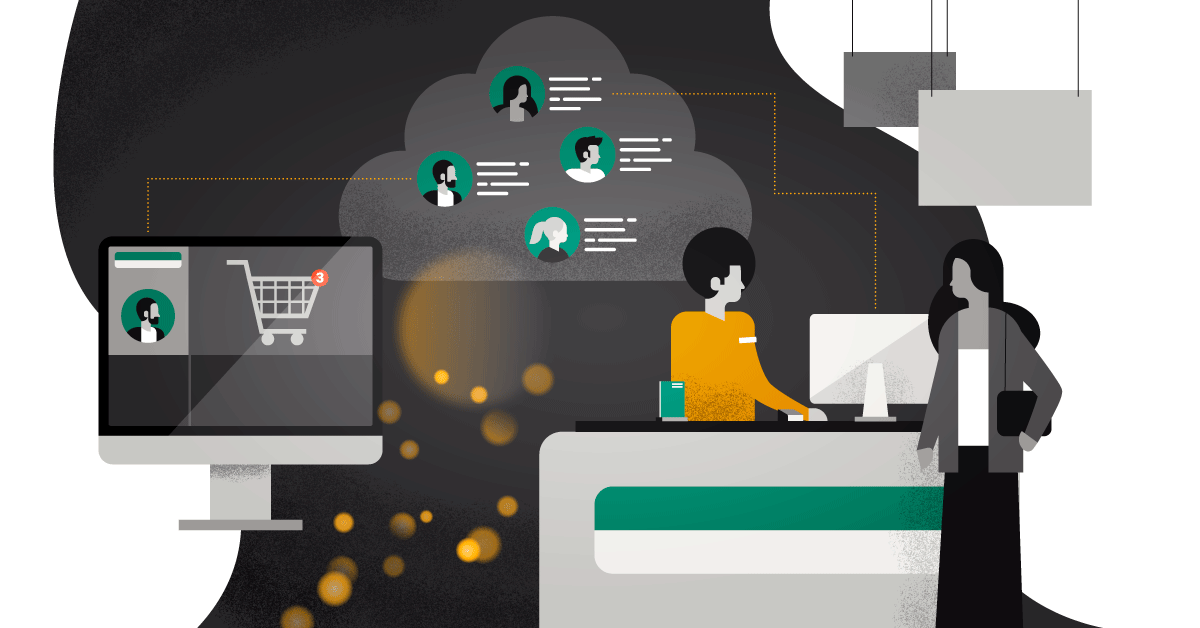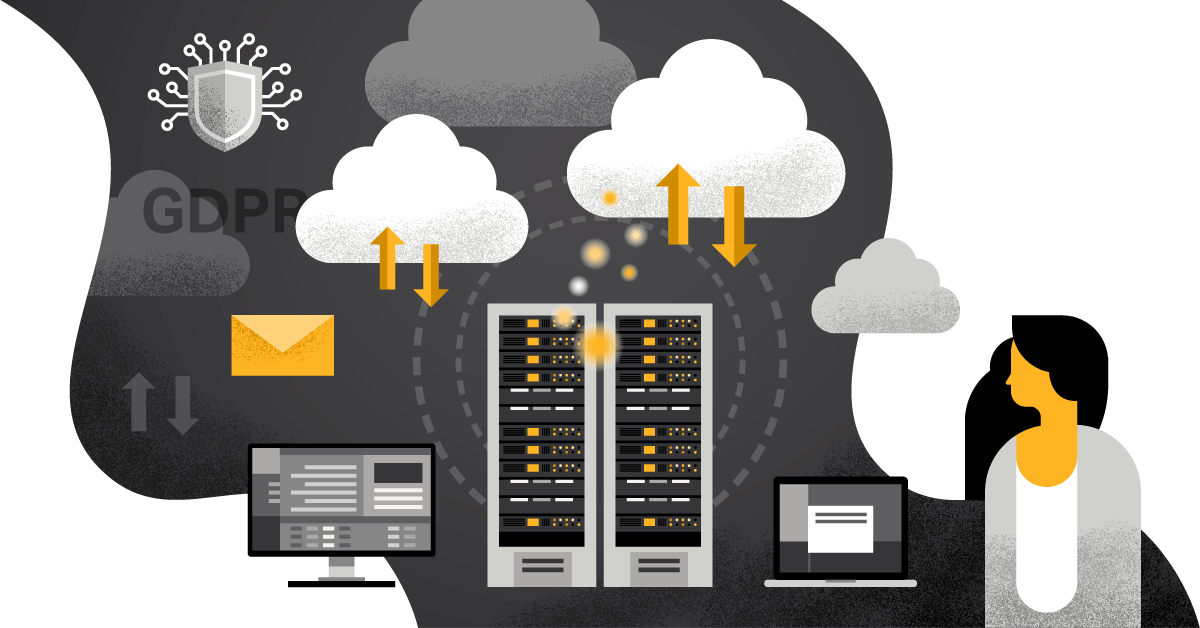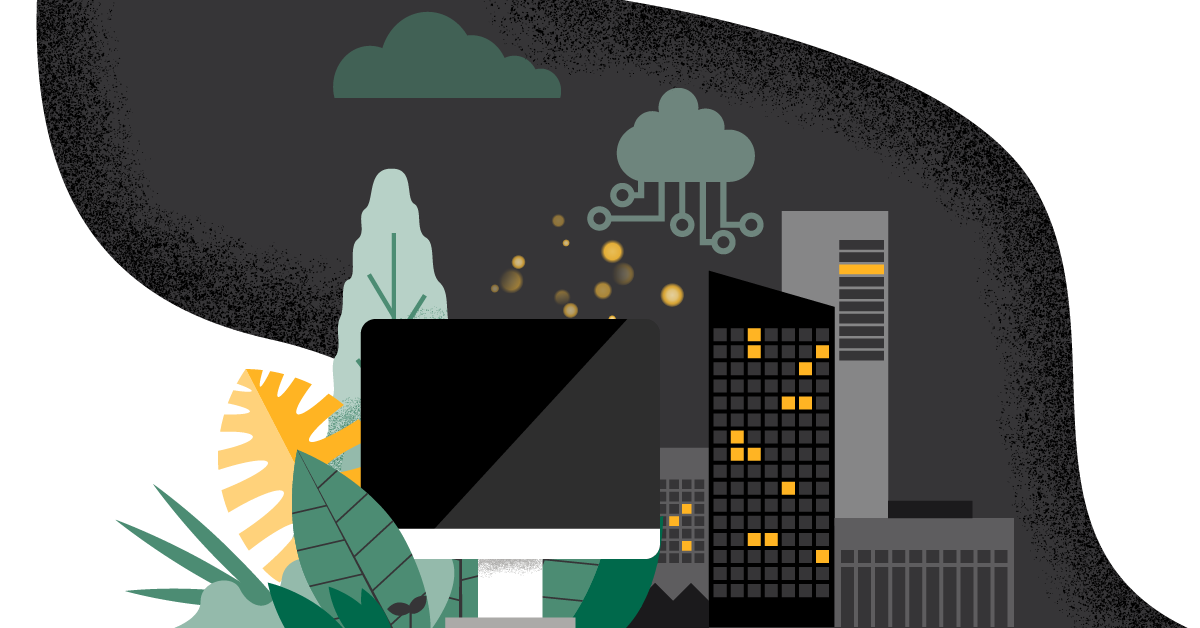
The fight for customers in the retail industry is going back and forth between physical shops and online shopping. Buying habits and loyalty are changing, and with the corona crisis, attracting customers has become even more challenging. Kim Lars Jakobsen, Head of Optimize & Innovation, Lead Architect in Sentia, indicates that it is more important than ever for the retail industry to choose a robust and flexible IT infrastructure where expenses do not get out of hand.
It is no surprise that e-commerce is not going anywhere. E-commerce is rapidly increasing, and with the lockdown last spring, e-commerce was boosted. Several online platforms reported significant revenue growth. Everyone is competing for the customers, and therefore it is essential to look into the winning strategies in the retail industry.
Two things are noticeable, and both point in need of a robust and flexible IT infrastructure.
- Firstly, it is a demand for the physical stores and the online platform to have two legs to stand on. Physical stores are still relevant when it comes to tactile experiences and personal presence. If you can combine this with the comfort of the significant storage capacity and free home deliveries, characterized by e-commerce, you have a strong position. The combination of online and offline appears to be the winning strategy.
- Secondly, traditional retailers should look more into the best online shop's use of customer data. As a customer, you might feel the online shops know you better than the physical stores because online shops take advantage of customer data, buying history, preferences, etc. Mobilizing data is thus also a strategy with a future perspective.
How does this impact your data?
The need to be agile online and offline, as well as the capabilities to offer customers a personal experience, points towards the IT infrastructure and managing data.
It is about customer data's extent and nature. It can be challenging to tell what type of data is required to develop the business in one or two years. Therefore, many choose to collect as much data as possible. At Sentia, we work with Data Lake Engineering, where all the types of data "is put in a lake," so it is possible to fish what you need to develop the business today and in the future.
It is also applicable to the use of Data Analytics, meaning layers of intelligence, making you and your key employees capable of fishing the required data, and using it offensively to deliver excellent customer service and offer new relevant products for the customer. Altogether secure flexible and cost-effective procedures.
Technical debt can be a wheel chock
To sum up, knowledge is power. The more you know about your customers, the more you can organize the business – online and offline. In this regard, it is essential to address some challenges that make it difficult to exploit the data to secure the necessary freedom of action fully.
An example is existing equipment, proprietary applications and systems, tailored solutions, and the like, which have expired the date of service renewal, updates, and support. It can result in static solutions because of the technical debt, where it becomes inexpedient to continue working on the existing solution and too expensive and immense to drop it.
At this point, it is important to look up and see 2, 3, and 5 years into the future to obtain a realistic assessment of where the market and retail sector are moving. The competition will continuously increase, putting pressure on costs. And this is where a robust and flexible IT infrastructure comes into the picture.
The cloud offers scalability and freedom
To collect and store significant amounts of data, intelligent management of it, and maximal flexibility points towards cloud solutions in a challenging competitive sector as the retail industry. Retail is an exceptionally dynamic environment with significant peak workloads. The cloud offers extra capacity with "just a push on the button" without substantial investments or the risk of adding more technical debt.
At Sentia, we are certified within the main public cloud platforms and offer private cloud environments that match the business model of customers perfectly. We find the optimal solution, and we are convinced that this will provide more freedom than committing to one specific platform.
We recommend working with generic solutions and with as many standard components as possible. The IT infrastructure must be consistent, easy to administrate, and simple to replace, develop, and update. In this way, it is straightforward to keep costs on a short leash and work with reliable and manageable budgeting Lifecycle Management.
Be aware of pitfalls
The cloud is not a magic wand that turns things into gold. Challenges are also hidden in the cloud solution, e.g., the actual migration. It does not always make sense to migrate everything 1:1 from A to B. Sometimes it makes more sense to move higher into the technical stack and only migrate, e.g., the actual database into the cloud as a Database-as-a-Service.
It is important to consider the setup, map the need, and adapt the new solution to optimally take advantage of the cloud technology. The winning strategy includes the cloud, and at Sentia, we are available to consult if you wish to discuss details in the solution further to bring your future visions across the finish line.

BY
Kim Lars Jakobsen
Kim Lars Jakobsen is the CTO at Sentia Denmark, with many years of experience in management, infrastructure, IT security, and compliance. As a former head of IT Operation & Support, CTO, Marketing Director Infrastructure, and Senior Enterprise Architect, Kim has significant technical and management experience, which is why Kim's consulting is valued greatly among his team and customers.



